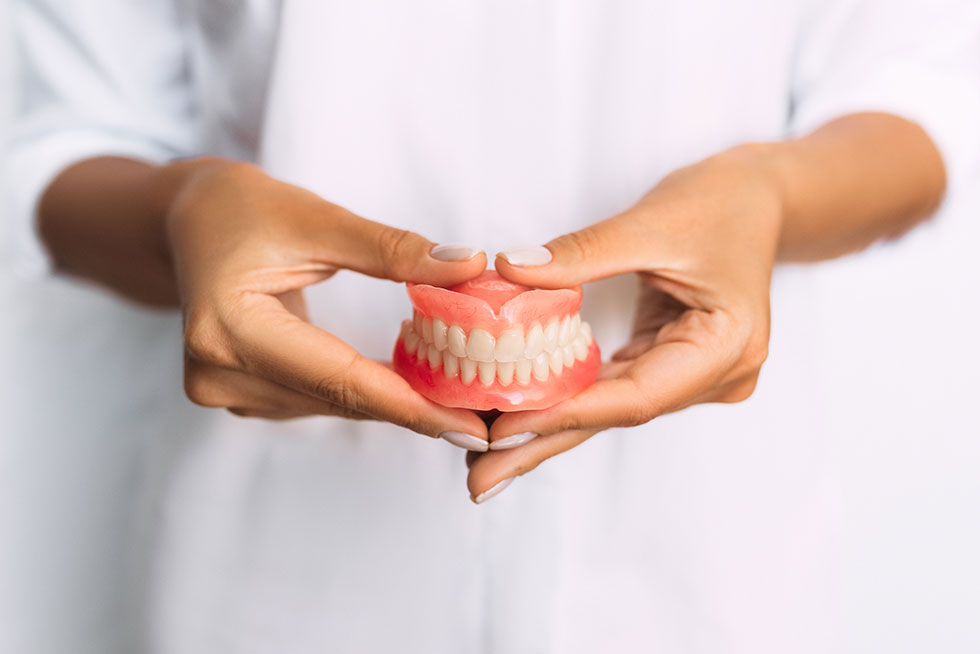TMD and Its Symptoms
TMD refers to a group of orofacial pain disorders that affect the way your temporomandibular joints, jaw, and mouth function. Other issues like poor tooth alignment or bruxism (teeth grinding) can put excessive pressure on your TMJ, resulting in irritation and inflammation. Headaches and jaw pain are symptoms commonly associated with TMD, which can also include clicking, grating, or popping sounds/sensations in the joints, difficulty chewing, biting, speaking, neck aches, and swelling of the area near the TMJ.
Dentures and TMJ
For some patients, TMD only develops when their teeth have been replaced with dentures. There are several reasons for this. One reason is that your dentures do not fit properly. If your bite is improperly aligned, your jaw muscles will spend a significant amount of time attempting to realign themselves and get worn out. Furthermore, an improper bite might place too much strain on your TMJ, causing discomfort, irritation, and inflammation. Another reason is that people who wear dentures remove them when they are sleeping. Your teeth play a crucial role in maintaining proper jaw alignment. Without teeth, your jaw is improperly positioned the entire night, which can lead to bruxism and TMD.
Treatment Options
When you have dentures, there are a few options for treating TMD. One option is to use neuromuscular dentures, which are specially designed to support your jaw muscles. They are designed to help you achieve an optimal bite, while also ensuring that pressure is evenly distributed to prevent bruxism and TMD. Another treatment option is to use a custom-made nightguard, an oral appliance designed to keep your jaw properly aligned while you sleep. It also aids in the absorption of the impact of clenching and grinding, relieving pressures on your TMJ and jaw, alleviating your pain. Lastly, if your missing teeth have been replaced with dentures, you can avoid TMD by exchanging your dentures for dental implants. Dental implants are designed to create an ideal bite and present a long-term solution that stays in place, functioning just like your natural teeth. With this form of restoration, you can relieve pressure on your TMJ, reducing pain and improving your quality of life.
Combat Your TMD with Head Pain Institute
If you are experiencing pain or discomfort caused by TMJ or TMD, look no further than Head Pain Institute. We are committed to using the best evidence-based diagnosis and pain management treatment methods for you, no matter how challenging or hard to detect your condition is. We are the leading providers for the treatment of TMJ/TMD disorders, head, eat, and neck pain, sleep apnea, and sleep disorders in the United States. Reach out to us if you have any questions or would like to schedule an appointment.




